Executive Interviews
Our Executive Interviews feature top leaders from across the disciplines that we specialise in, sharing their career advice and experience with candidates seeking success in those sectors.
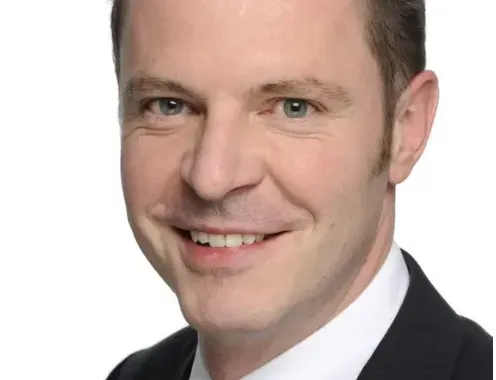
Marcel Lenzlinger - Regional Vice President Finance - TechData
As someone who has had over 20 years’ experience within the Swiss market-place, how have you found the Swiss market & working environment has changed over these years?
It has completely changed. The main driver is the change in technology. Twenty years ago, who had a mobile phone? The answer is almost nobody. Technology has impacted and accelerated other changes like globalisation. It certainly changed the working environment; availability is no longer limited to office times.
Communication is now faster, usually more efficient and more frequent than it was 20 years ago. I use video conferencing systems daily enabling me to visually connect to people all over the world at little cost.
What challenges await your business and how do you hope to overcome them?
Our industry has always been very fast moving and high paced. But summarising the last twenty years, it has meant changing product portfolio; less desktops, more notebooks; then less notebooks, more tablets etc. The last years were driven by the growth of smartphones. At the same time we saw a continuous pressure on margins, we reacted to this by adding more value for our customers and streamlining our cost structure.
Currently we are entering a decade of significant changes. Among others, the following four trends may have an impact our industry:
- Internet of Things - meaning more and more devices being connected. It is expected that the number of devices connected over the next five years will double. Studies estimate efficiency gains in 2025 to be somewhere between 4 and 11 trillion dollar – What an opportunity!
- Industry 4.0 – meaning connecting the production processes and machines - crossing borders allowing optimization of Supply Chains with immediate detection of defects. It will also impact the construction area: You will be able to walk through your new house with 3D glasses, walk into rooms, choose colours and furniture etc. before anything has started. Parts of your house will be printed and no longer built. They estimate in a study that going forward this will save 60% of the material and 70% of the time to build a house.
Almost all areas of production will be impacted and will have a significant impact on job profiles and requirements.
- Cloud – meaning you will have your current data available anywhere at any time. Many people think of this as a personal cloud /storage space (e.g. Dropbox), but this will become more relevant to the working world with private clouds.
The Software industry already started to move the business model from buying to renting a software. This means a different revenue stream for the manufacturers and a different model for the users, e.g. you will always have the latest version of a software.
- Security - having everything linked and stored in the cloud raises the question, is it secure? The need for Security will boost the demand for both physical and software security.
There are so many different opportunities for our industry, if we catch them. The competition will change in response to the differing up and coming opportunities, we will see new competitors, some we do not even know about yet, many of which will be entrepreneurial start-up companies. As a consequence our industry will look quite different in 10 years’ time.
What does your organisation currently do to contribute towards career development?
For us, the most important asset is our people. I know everybody says that however for us it is so important as it is what differentiates us from our competitors, the personal touch from our sales staff and the customer service we provide. After all, the products we sell today are exchangeable – ” it’s the same box our competitor sells there’s hardly any branding”?.
We invest to retain and develop our employees, for example we have our own academy; the ‘Tech Data Academy'. This is where managers and staff with high potential learn about not only Tech Data but also the economy, management, financials etc. We systematically do ‘on the job’ training with internal and external trainers and have career plans in place.
As you hold a degree in Economics and a Masters in Accounting/Controller, what would have been your third choice and why?
Actually, none of them were my first choice. As a teenager during my apprenticeship I was interested in literature about psychology and human behaviour. My plan was to study psychology, so I visited an information day in a school in Zurich. Unfortunately they told me I would need a degree first. As most of the other visitors had a degree in Economics, I followed suit with the clear aim to study psychology afterwards. It turned out differently. But I am still fascinated by human behaviour, how they react to certain situations etc.
What are your career motivators?
To do my job well and achieve my targets, my strongest motivation is to strive to do this every day.
What attributes do you look for when choosing a recruitment partner?
Trust, the better the recruiter knows my company, its’ culture, me, my team, my needs, the better the pre-selection will be. Over time this will lead to building a partnership where both parties know one another well and work well together. Personally, I do not believe in changing a recruiter each time we have a new role to fill. The cost of recruiting the wrong person is huge.
What would be your advice to someone aspiring to be where you are now?
Firstly: Make sure you set big targets, and set them high!
Life is like walking on a landscape, with hills and valleys: If you are on a hill you have a good view and everything looks nice, but if you are in a valley the next hill looks much bigger than it actually is. If your target is not set high enough, you lose it when being in a valley. But if it is high up, you will still be able to see it. I have always set high targets.
Secondly: honesty, this is more important than short term benefits or short term profit. For me, this is a key attribute for an employee to have. Always be flexible and anticipate change, make decisions hard decisions, but never lose your humanity. Push yourself out of your comfort zone to achieve targets, ensure you work hard and focus on the important things. Do not expect to be better than average if you work average!
Finally, you need to have the right theoretical background; go to school and study, the younger you are the easier it is. Keep refreshing your knowledge, find something new to learn.
*Views and opinions contained within our Executive Interviews are those of the Interviewee and not views shared by EMEA Recruitment.*

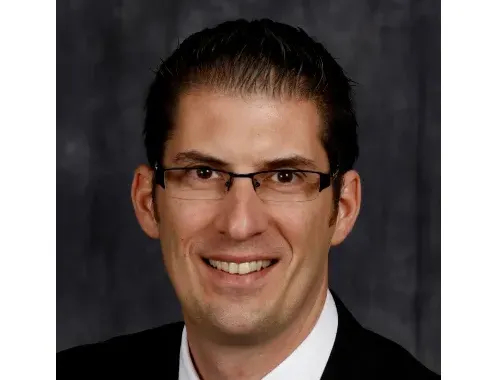
Markus Annen - VP Procurement- Control Products and Systems - Siemens Building Technologies
What excites you about working for Siemens Schweiz AG
First of all, it is very motivating to work for a company with over 160 years of history and such a vast amount of inventions. Siemens is a company built on a strong fundament and we are proud to be one of the world's largest producers of energy-efficient, resource-saving technologies. Personally, I also like the international presence and the cultural mix of people you are working with.
What does your organization currently do to contribute towards the corporate social responsibility?
Our strategy within Siemens is geared towards four global megatrends – demographic change, urbanization, climate change and globalization – and their effects on society and our business. Corporate governance based on the principles of sustainability forms an integral part of what we understand by profitable and successful entrepreneurship.
This is reflected in the Siemens Environmental Portfolio, where the company is already a global leader. Our commitment to sustainable development is clearly evident in our expertise in ” green”? solutions. Independent organizations have acknowledged the extent to which we factor sustainability into everything we do. For many years, Siemens has held a leading position in both the Dow Jones Sustainability Index (DJSI) and the CDP (Carbon Disclosure Project).
Within Procurement we further expect suppliers to comply with and implement their commitment to the standards and principles specified in our Code of Conduct. With respect to issues of human rights, labor standards, environmental protection and anti-corruption initiatives, the Code of Conduct for Siemens’ suppliers and third party intermediaries is essentially based on the principles of the UN Global Compact. Acceptance and implementation of the Code of Conduct is a basic requirement in order to do business with us.
As someone who has had over 16 years’ experience within the Swiss market-place, how have you found the Swiss market & working environment has changed over these years?
I believe the Swiss market place has become more efficient, more international and more agile over the years. Especially since the financial crisis, Switzerland has been challenged with currency exchange rates and the constant high productivity demand. Agility and willingness to change and adopt have become prerequisites to be successful. However, I am not sure if we have seen the full impact on the market yet. The immigration of international talents on the other hand has helped us to maintain a high living standard but it has also challenged the job market in regards to competition.
If you could go back and give your younger (graduate) self some career advice, what would it be?
I would recommend them to gain international experience at an early stage. It does not even matter whether it is a work experience or educational studies. It just provides them with a different perspective and cultural exposure. This is becoming more and more essential in a globalised world.
As your first degree was a Mechanical Engineering what would have been your second choice and why?
I always had affection for figures so Finance would be my second choice. As an entrepreneur you always need to have a good understanding of the full picture and that includes the figures. Whenever I act I always assess the financial impact or benefit of the action to assure it makes sense from an entrepreneurial point of view
What makes you relax from working in such a pressured role?
I am addicted to sport so I like swimming, mountain biking or working out in the gym. Depending on the season I vary on my preference. Furthermore, I love photography to express creativity. It fulfills me with pleasure to capture a moment of time in a nice photograph.
What would you say is the most rewarding part of your role?
The most rewarding part of my role is to work with a motivated team towards a common goal and to support them developing their personal career. I further enjoy working internationally and with different cultures. Working with different cultures has truly expanded my horizon and I enjoyed spending four years working the United States.
What do you love most about your current role?
In Procurement you interface with most functions within a company and every action always has bottom line impact. You constantly implement strategies that ensure the best possible value for money is obtained when doing the purchase.
What recruitment challenges do you face?
I am glad I have a very low churn rate right now. Good people in Supply Chain are hard to find especially since companies have realised the added value of it. I see an increasing demand in this area which makes me concerned about future shortages in the talent pool. But in general it’s a challenge to find the right balance between good technical and commercial skill sets.
What was the worst/best interview experience you ever had?
Well, I cannot really say I ever had a very bad interview experience but I have learnt to focus more on the ” individual contribution”? the candidates have performed in their previous jobs. On the other hand, I already have a lot of good interview experiences. For example, candidates that come well prepared and quickly connect the dots. They ask the right questions and get a good feel for the job.
What advice would you give to future aspiring leaders, and why?
First of all, the only definition of a leader is someone who has followers. That already sets the tone but typically, managers manage things and leaders lead people. This is the first prerequisite beside three main things to focus on: Be a strong performer in what you do, make sure you are visible within the organisation and build up a strong network.
Who was your most admired person in your childhood and why?
Good question, I guess it was Batman or Spiderman. Two heroes with the same goal to make the world a better and safer place.
Who is your most inspirational person in business and why?
I like Nick Hayek, the CEO of Swatch. It is inspirational to see a CEO that does not let himself be influenced by analysts and short term interests. Yes, he is for sure egocentric but always makes his decisions based on long term perspectives. We need entrepreneurs with such qualities in top companies.
If you could choose an Artistic, Musical or Sporting career, what would it be and why?
I would love to be a photographer like Herb Ritts. He was an amazing black and white photographer and whenever I look at his pictures there is so much vitality and expression in it.
*Views and opinions contained within our Executive Interviews are those of the Interviewee and not views shared by EMEA Recruitment.*

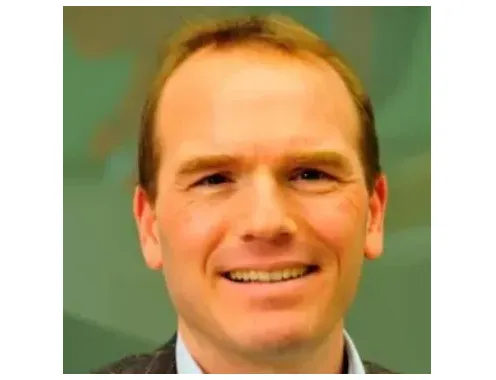
Maarten Peters - Head of Global Risk Management, Internal Controls & Finance Integration ?£" TNT
Looking back through your established career at TNT, what would you identify as a personal highlight?
There are many highlights during my career at TNT. If I were to prioritize, I would rate the successful and sustainable turnaround and integration of the acquisition TNT did in Chile as my number one. Having said that, setting up the regional Finance function in New York and doing Mergers & Acquisitions in Shanghai rate as close second ones.
Your experience has been very International, what are the main challenges you have faced during your various assignments?
The challenges varied across the different locations and positions and included understanding different cultures, gaining trust from the people you work with (without speaking their language), establishing or improving (Finance) functions, processes and profitability, and just simply getting the job done despite being completely new to the field of expertise.
What would you say is the best piece of advice you could give someone who is just starting out in their career in Finance?
Make sure you continue to invest in yourself, through professional education, move from a head office to operating unit (or vice versa), work in different areas of Finance (if possible also outside Finance) and, of course, in different parts of the world.
What would be your advice for someone looking to make their initial move in to Industry?
If you are moving from a professional audit firm into an Internal Audit function, I would recommend to look for a company that supports development and acknowledges that audit is a step into the business and not a goal in itself.
When interviewing candidates at an earlier stage in their career what are the common mistakes you see and what advice would you give?
Sometimes candidates very much have an (external) auditor mindset and have difficulties to relate to the business and provide pragmatic solutions.
What advice would you give to future aspiring leaders, and why?
Don't be afraid to take risks and go outside your comfort zone, as only that way you will learn your boundaries and get the most out of yourself. In addition, focus on the people you work with, as none of us is as smart as all of us.
If you could go back and give your younger self some career advice, what would it be?
To start, I am very happy with the various positions held and the opportunities TNT provided to me. If I were to do it again, I would have spent more time on learning the local language early on (or before) arrival in a new country.
*Views and opinions contained within our Executive Interviews are those of the Interviewee and not views shared by EMEA Recruitment.*
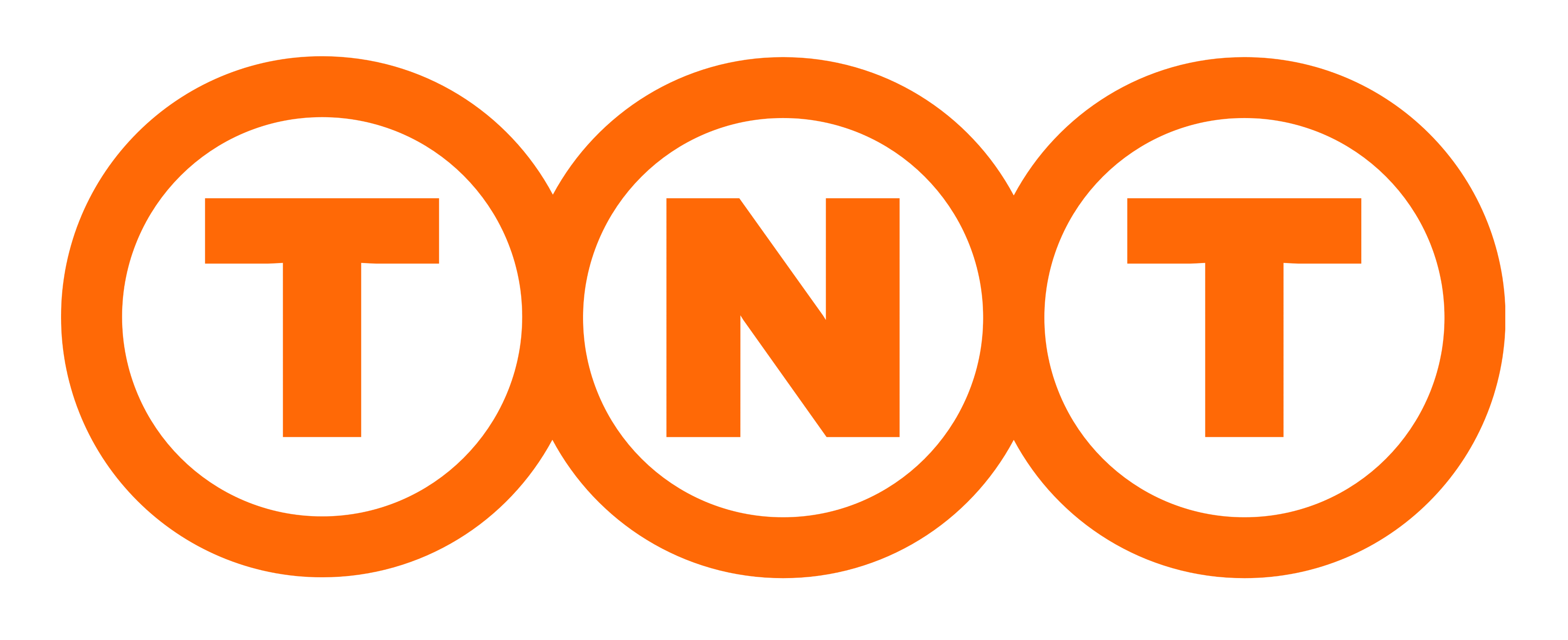

Romain Raimann - Senior Manager Corporate Audit - Baxter International Inc
As someone who is interested in sports in general, what can Switzerland offer?
Due to its topography, Switzerland offers a wide change of outdoor opportunities. As you may be aware, we have a lot of lakes, rivers, mountains, forests and open areas that are all easily accessible due to their proximity from our main cities and the excellent transportation system that this country offers. In addition, the seasonal weather increases the variety of options that are available to all outdoor fans. Last but not least, I haven’t heard anyone complaining about some of the amazing landscapes that are definitely worth exploring!
What advice would you give to someone looking to move here at the current time?
First of all to ensure that the company has a medium/long term plan in place to keep its presence in Switzerland. As all other countries do, we are subject to economic and political factors/decisions that may justify reconsidering the needs to set up/keep local operations. However, Switzerland has been and remains a very attractive place to do business and invest in due to its stability, safety, know-how and qualitative workforce which will always be favourable elements. I would also mention to assess if the Swiss lifestyle is something that matches the expectations of people coming from abroad – We have a very high quality of life but are quite different from our neighbour countries. Finally I would definitely recommend learning the local language which will be an asset for the rest of your life.
What is the best advice you have ever been given?
To make sure that you learn new skills or develop new ones every 6 months as part of your private and professional development and that you make a difference in your current role before moving too quickly to the next one. A career is something that should be built with patience and decisions should be taken considering the long run.
Who do you look at for sources of inspiration?
People and leaders that are able to balance their life (work life balance) and manage their time efficiently. By definition time is limited which makes it very precious. I always believed that we all beneficiate from being able to switch off from work regardless of how busy and how much responsibilities we have. With the development of technology and the endless increasing completion and pressure, we are all required to be more connected and flexible. Being able to add skills and perspective that come from our private life into our professional live is key. Similar to the previous question, this is something that will contribute to the long term success and stability.
As someone who has lived in both the French & German speaking regions of Switzerland, what would you highlight as the main differences of the regions?
First of all the language…even if pretty much everybody speaks English in Switzerland! The mentality is also very different but this is not only dependent of the speaking region that you are in but if you live in a city or in the country side. In general, German speaking people seem to be more conservative. People’s habits are also different but this difference trends to decrease due to the fact that our main cities have a lot of expatiates. They both offer multiple job opportunities and a wide range of outdoor activities.
*Views and opinions contained within our Executive Interviews are those of the Interviewee and not views shared by EMEA Recruitment.*

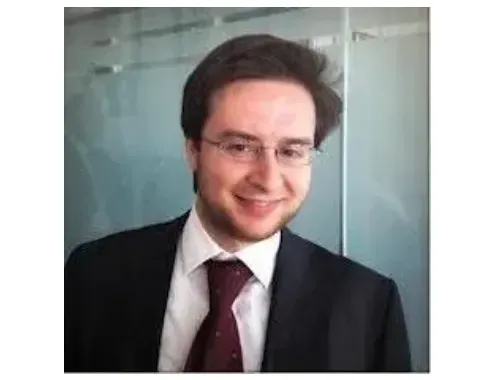
Giulio Campanella - Associate Director, Duracell Regional CFO Europe and IMEA - P&G
You have clearly had a long and successful career within P&G since 1999. Why is P&G such a good place to work?
P&G is a great place to work, indeed. The first stunning experience is the quality of the people. It’s excellent! And what unites those brilliant people is their passion for winning infused by a very strong ethic and value driven business approach.
As you spend much of your time in Geneva, what do you like about Switzerland?
The people, their balanced culture and the proximity to the most magnificent landscape. I like the easy access to nature and outdoor sport in general.
You have recently been leading the re-structuring of the Duracell business. What were the main challenges and successes for you during this project?
Duracell today is a division of P&G, and will become a fully independent, stand-alone entity owned by Berkshire Hathaway. For me, the biggest challenge was to (re)create the F&A Team, from a small regional HQ team to an end to end Finance function leading the region. This team will have a critical complement skillset, balance technical hard core F&A skills with start-up spirit and passion to succeed with this project.
As a senior finance leader who inspires people, who do you look to for sources of inspiration?
The biggest source of inspiration for me is having a purpose, in business like in life, and putting every action in the context of this purpose. My purpose is ” improving everyone’s life”?, and my way of doing that is by selling products which perform better and truly improve people’s life. As well, by being more performing, you end up using less resources and therefore produces less waste. In my experience, it is important for each employee to feel what they are doing goes beyond business titles and a pay check at the end of the month.
What is the best piece of advice you have ever been given?
Stay true to yourself. Every person is
different, and the best way to succeed is to find what is the unique thing one can add, and playing to one’s strengths.
Finally, with the Christmas period fast approaching, what are your plans for the festive period?
I will enjoy spending the time with my family, that’s my lovely wife my great 3 year old boy and my only recently new born baby girl. Being with them will allow me to recharge my batteries and looks towards a very successful 2016 with Duracell.
*Views and opinions contained within our Executive Interviews are those of the Interviewee and not views shared by EMEA Recruitment.*

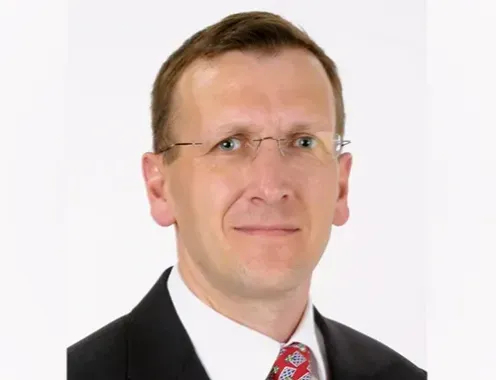
Mathias Schinzel - CFO - Emerson
Emerson Process Management seems to be continuing to grow and expand what makes you stand out from your competitors?
I think we have had a good run until a year ago. In all fairness, however, with the oil price being low this year we – like our competitors- are now having to structure and redirect our business towards industries that use oil and gas as their feedstock. Our recent order intake numbers make us optimistic that we are going in the right direction .As you alluded to in your initial question we have done really well.
What do you enjoy about living and working in Switzerland?
It is a very stable environment in a central European location and an excellent infrastructure. Tax incentives have always been a factor in the past. And quality of life is very good here.
As someone who has about ten years of experience working in the Swiss market-place, how have you found the Swiss market & working environment to have changed over these years?
Economically things have changed in the last couple of years: there is more pressure for transparency in banking and taxation. Last year’s referendum on immigration will inevitably have a future impact on the issue of work permits. Finally the Swiss franc has recently strengthened. These things all put pressure on the country and companies and serious challenges ahead.
What are the biggest challenges currently facing the business?
No one can tell where the oil price will go, but if you watch the news the supply of oil and gas is high at the moment and we will stay in this low oil price environment for a while so we have to explore other sectors. We have benefitted from the expanding Chinese economy, so the downturn in the Chinese economy has affected our business. We will have to see how we reposition in China and the export from our European countries into China. It’s a portion of our business but not large enough to have a dramatic effect. Matters in Russia we will also have to monitor.
Have the ongoing problems in Greece and its impact on the Eurozone had any impact on Emerson?
The Greek market is comparatively small. However, the Greek crisis has had a detrimental impact on the Euro.
What attracted you to join Emerson and what has kept you engaged about working here?
I joined when a segment of my previous company was acquired by Emerson. Once here I began to appreciate the company culture and its values, which match my own in many ways. It is a global company with a vast number of career opportunities, assuming you have the flexibility and personal circumstances that allow you to pursue positions abroad.
What do you see as the core values of Emerson?
Drive for results, continuous improvement and problem solving, reliability and commitment, honesty, humility and integrity. We don’t take short cuts and we work hard.
If you could go back and give your younger (graduate) self some career advice, what would it be?
My oldest daughter just finished her International Baccalaureate and we are having lots of discussions right now. I recommend taking time whilst you are young to explore what you enjoy doing; your chances of success are significantly higher if you really like what you are doing. Try new things; have different experiences and try different occupations. Travel is invaluable to get a sense of the vast variety the world has to offer; see the world before getting embedded in your career. Do not be naïve in thinking you can plan or predict anything beyond the next 5 to 10 years. It is likely that you will retire in a quite different place than where you started your career and that in itself is not a bad thing.
What are your personal motivators?
Making the company better every day; helping the team to develop their competitive edge; using my common sense; decision making as if it were my own company; continually learning; helping to nurture younger talent.
How did you plan out your career development path?
Step by step, I had no long term plan. I was open minded and self-motivated and grabbed every opportunity that arose.
How do you relax outside work?
Honestly, I do struggle to switch off from work at times. I am trying at the moment to get my focus back on the main things and don’t get distracted by the noise. I have worked out with my all my direct reports to work a system for when I am on holiday to prevent flooding my emails and how to reduce e-mail traffic in general. It is one thing to say, I am not going to look at my emails, but at the same time nobody wants to get back from holiday and have a 1000+ emails. When I do switch off eventually, I enjoy spending time with my family, sports (hiking and skiing), reading, wining and dining.
What would you say is the most rewarding part of your role?
Having a hand in the development of future leaders, coaching, inspiring and mentoring people.
Looking back through your career, what would you identify as a personal highlight?
My time in China shaped me the most, both in work and private life. It was a real adventure. There were several particularly memorable leaders who had a great influence on me.
What was the worst / best interview experience you have had?
Best: when you can have lively discussions on different business scenarios early on in an interview.
Worst: when a candidate answers with a generic statement indicating that they have not had hands-on experience.
How would you advise a jobseeker to approach the current market?
Do your research! Spend as long as time allows for detailed research. Ensure that you make you application in the appropriate manner for that particular company. Showing an edge is better than trying to please everyone. Have a niche.
What advice would you give to future aspiring leaders, and why?
Be passionate, true and use your common sense. Take a balanced view; keep your sense of humour and moral integrity. Make a difference and try to maintain an entrepreneurial stance, even in a large corporation.
Which person do you admire in business and why?
Steve Jobs for his uncompromising vision and execution; I am not sure I would adopt his leadership style however! There are also a number of CEOs, of small and medium size companies, for their personal vision and perseverance surviving in niche markets through innovation and speed. Politically I admired the German Chancellor Helmut Schmidt, in my opinion, one of the best leaders Germany ever had. It is fascinating and humbling to read his views and learn the extent of his knowledge.
*Views and opinions contained within our Executive Interviews are those of the Interviewee and not views shared by EMEA Recruitment.*
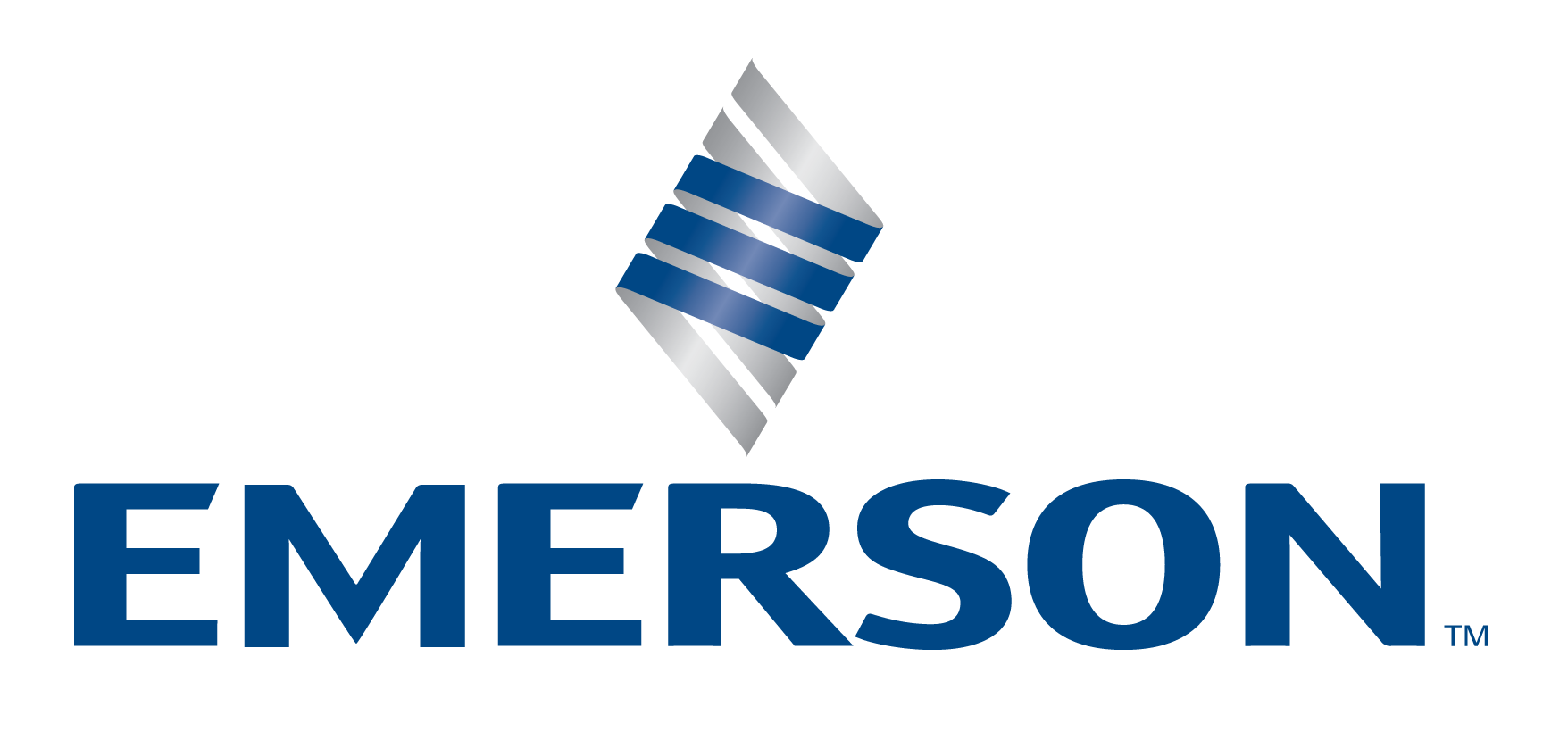







You can also use your social account to sign in. First you need to:
Accept Terms & Conditions And Privacy Policy